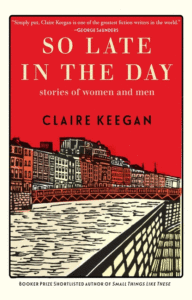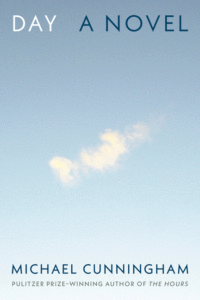
November’s Best Reviewed Fiction
Featuring New Titles by Sigrid Nunez, Claire Keegan, Michael Cunningham, and More

Sigrid Nunez’s The Vulnerables, Claire Keegan’s So Late in the Day, and Michael Cunningham’s Day all feature among this month’s best reviewed fiction titles.
Brought to you by Book Marks, Lit Hub’s home for book reviews.
*
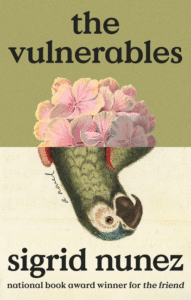
1. The Vulnerables by Sigrid Nunez
(Riverhead)
10 Rave • 5 Positive
Read an interview with Sigrid Nunez here
“Animals and uncomfortable topics: Count on these in a Sigrid Nunez novel. Her slim, discursive, minor yet charming new one, The Vulnerables, is no exception … This one comes across as a Covid diary, with a light scaffolding of incident to hold its meditations up. The narrator’s interactions with the parrot are funny and moving … I can do without animals, most of the time, in novels. But Nunez is a closer observer than most, and she is wittier … Like certain storms, this novel churns intensely in one place. There is a bit more plot …
I am committed, until one of us dies, to Nunez’s novels. I find them ideal. They are short, wise, provocative, funny—good and strong company … You don’t have to follow her all the way, and start digging the novel’s grave, to sense that she is onto something. It has always been true: Being told about life, by a perceptive writer, can be as good as, if not better than, being told a story.”
–Dwight Garner (The New York Times)
2. So Late in the Day by Claire Keegan
(Grove Press)
9 Rave
“Keegan offers a master class in precisely crafted short fiction in this collection of three tales … Keegan’s trenchant observations explode like bombshells, bringing menace and retribution to tales of romance delayed, denied, and even deadly.”
–Carol Haggas (Booklist)
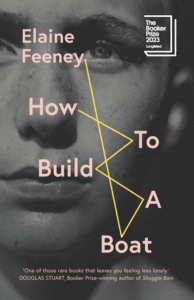
3. How to Build a Boat by Elaine Feeney
(Biblioasis)
4 Rave • 6 Positive • 2 Mixed
“Feeney’s titular boat, a handcrafted currach technically, features prominently in the novel’s final pages, and damned if I wasn’t wiping tears and holding back sniffles as the thing floated downriver … A poet, Feeney’s prose remains dextrous and aptly poetic, especially in representing Jamie’s thoughts … The author celebrates Jamie. Whether he’s observing behavior, making a joke or being assailed by catastrophic thoughts, the character thrums with life … Fumbling but continuing to strive to give life’s terminal messiness some shape, Feeney’s trio captivate with their everyday heroism of muddling though; they ask important questions and make do with provisional answers.”
–Brett Josef Grubisic (The Toronto Star)
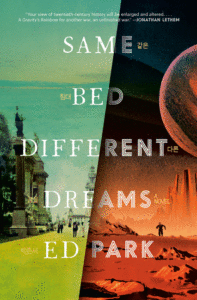
4. Same Bed, Different Dreams by Ed Park
(Random House)
6 Rave • 1 Positive • 1 Mixed
“It’s a challenging read and yet wonderfully suspenseful, like watching a circus performer juggle a dozen torches; will one slip his agile hands? Park seeks to encompass the vast Korean diaspora, but he’s also fleeing realism, a personal diaspora, away from conventional forms … Same Bed Different Dreams struts confidently across registers—lyrical, deadpan, acerbic, comedic—while doling out clues. Characters rotate in and out, some glimpsed in passing, their motives opaque … Sprawling, stunning.”
–Hamilton Cain (The New York Times Book Review)
5. Day by Michael Cunningham
(Random House)
5 Rave • 4 Positive • 1 Mixed • 1 Pan
“The only problem with Michael Cunningham’s prose is that it ruins you for mere mortals’ work. He is the most elegant writer in America. Admittedly, elegance doesn’t carry much cachet these days when Important Novels are supposed to make strident social arguments that we already agree with. But in the presence of truly beautiful writing, a kind of magic vibrates off the page. That’s the aura of Cunningham’s pensive new novel, Day. He has developed a style calibrated to capture moments of ineffable longing …
In a novel as thinly plotted as Day, everything depends upon the exquisite flow of Cunningham’s language, but quotations don’t do his work justice. You have to read these sentences yourself in context … Aging, along with its attendant separations and swelling sense of irrelevance, is the novel’s abiding preoccupation. I would accuse Cunningham of projecting his 71-year-old anxieties, but these characters, barely middle-aged, are wholly convincing exemplars of America’s new lost generation. At their backs they always hear time’s winged chariot hurrying near.”
–Ron Charles (The Washington Post)
Book Marks
Visit Book Marks, Lit Hub's home for book reviews, at https://bookmarks.reviews/ or on social media at @bookmarksreads.









